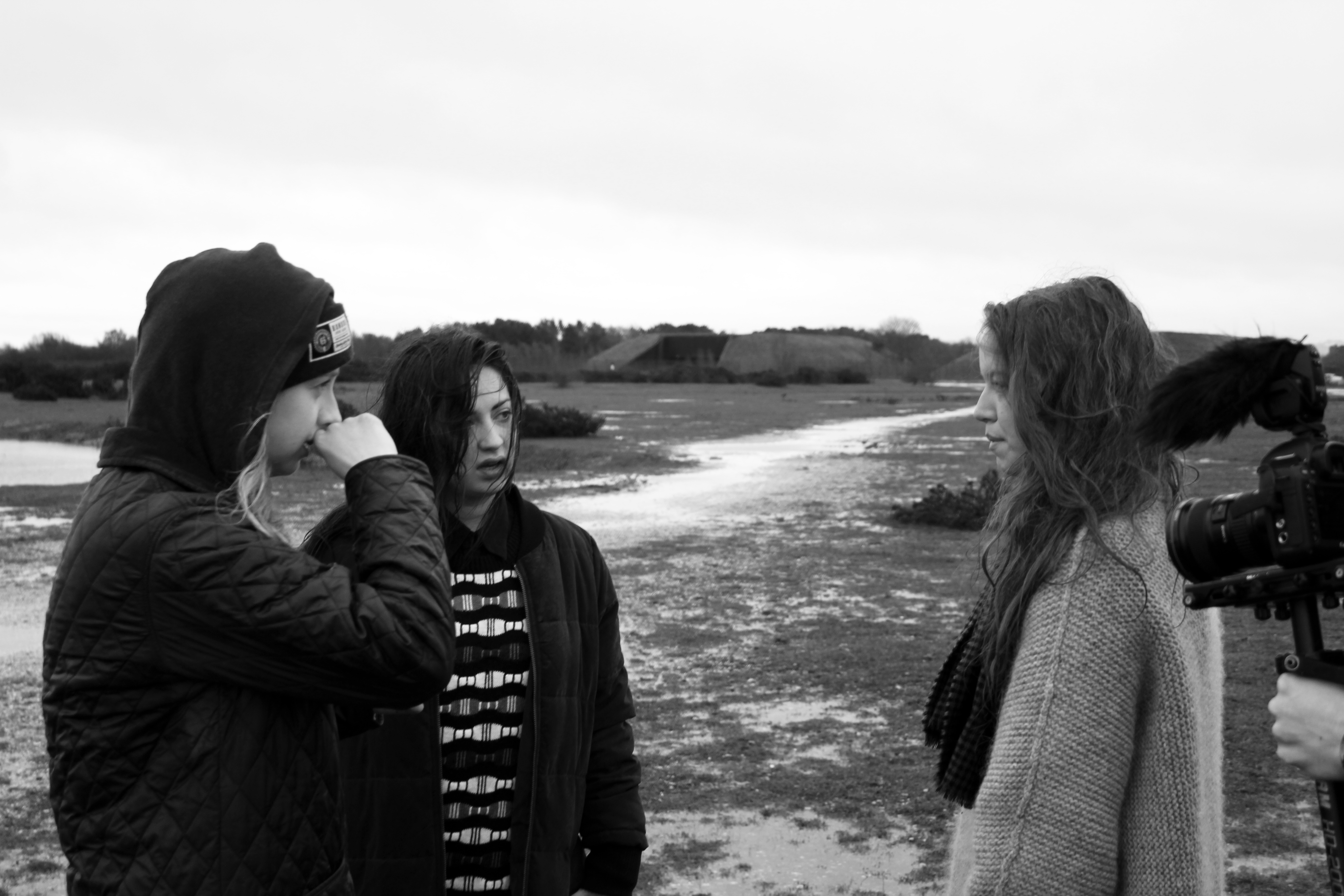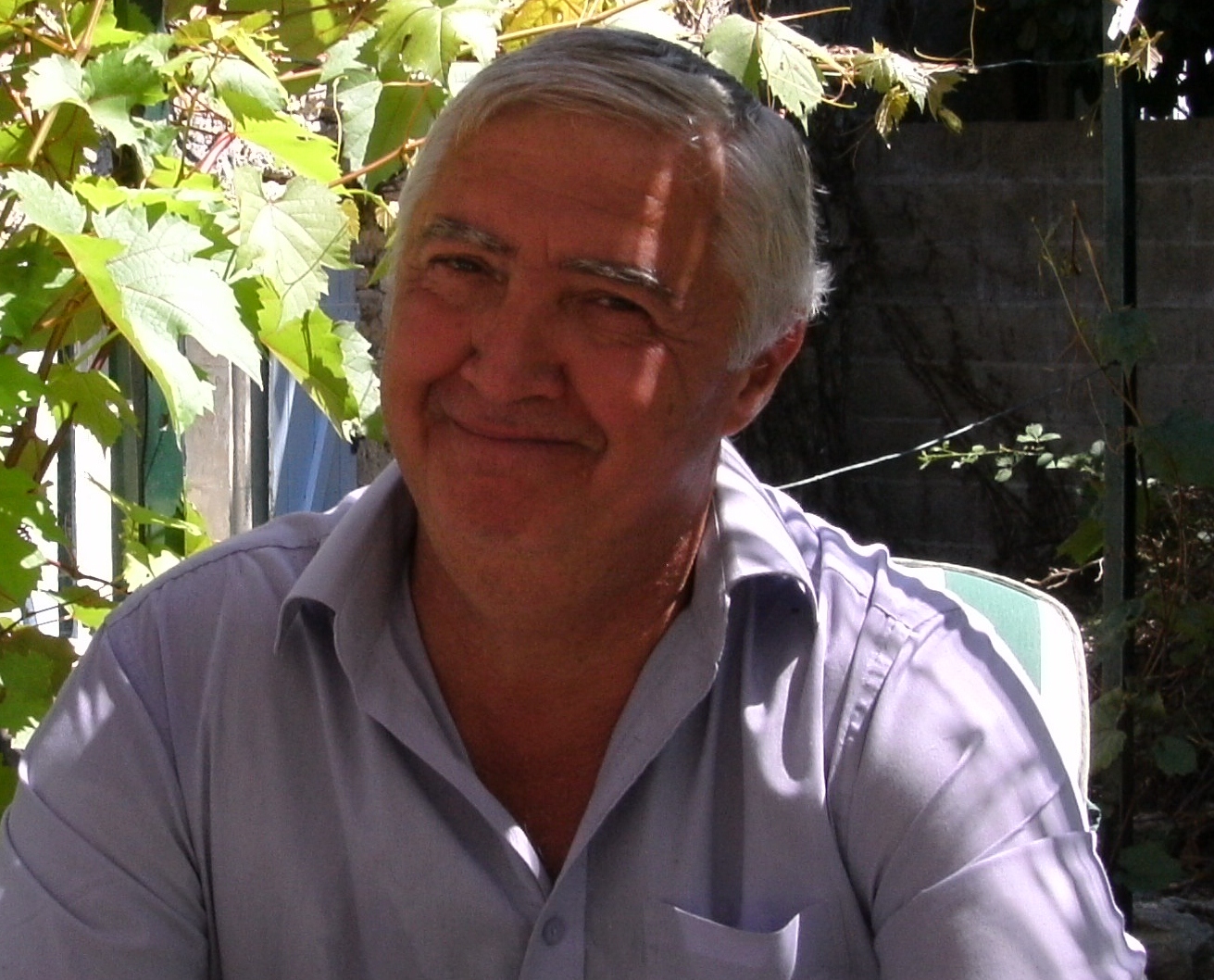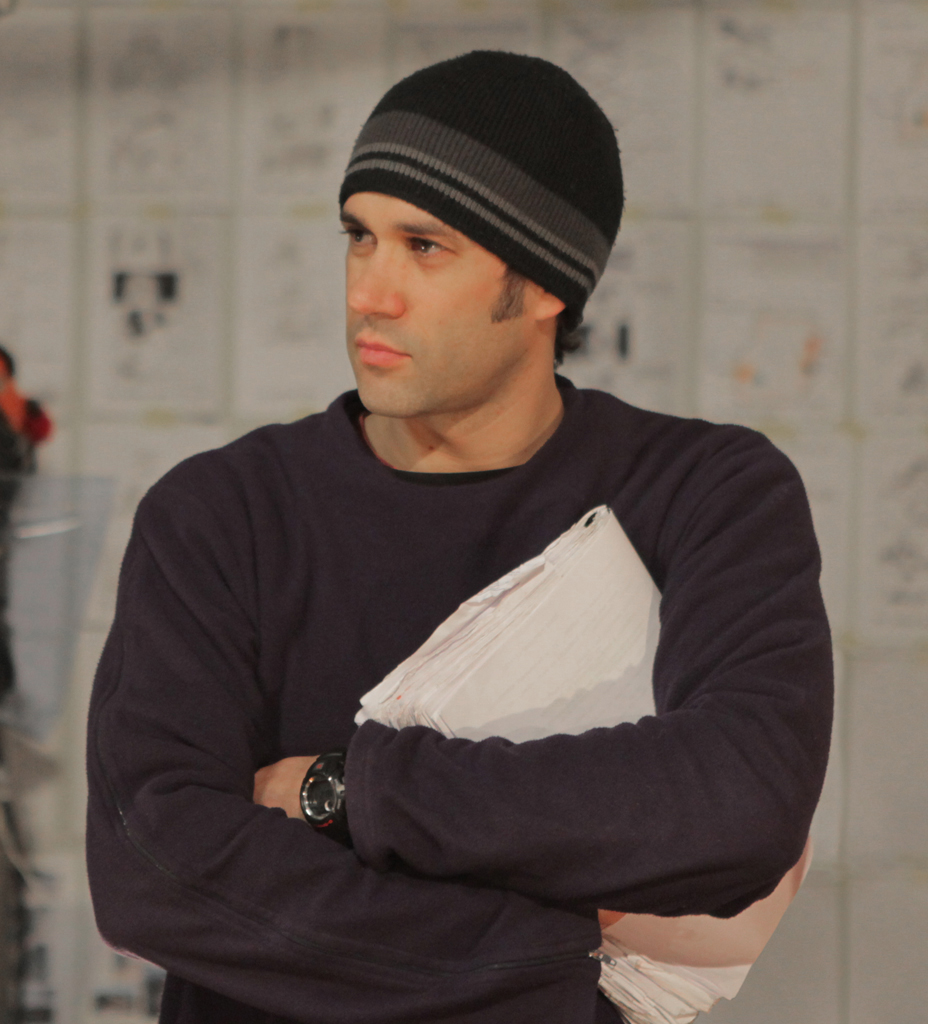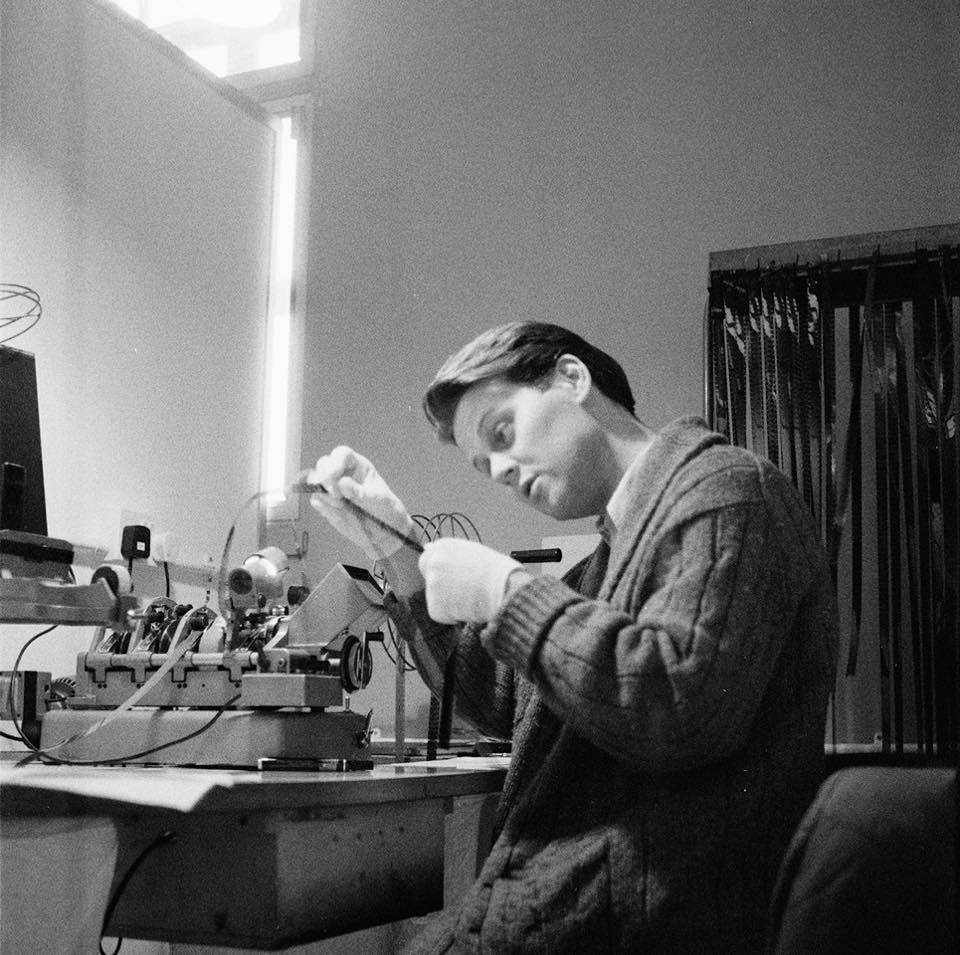ASK & DISCUSS
INDEXHow do you finish a project you have lost passion for?
9 years, 7 months ago - Grace June
Hi there, I'm new to Shooting People and have always been a wee bit nervous about joining.
2016 is the year of being brave (I've decided) so here goes. I just wondered whether anyone had any advice on completing a project they lost faith in?
Has anyone ever had a difficult experience making something or found that it didn't turn out as it hoped so struggled to finish it?
I've been close to throwing in the towel but have been (rightfully) told off by filmmakers I admire, as they hammered in the importance of learning from mistakes and seeing things through to completion.
I understand as well that I want to do right by everyone who worked on the project, particularly the actors who did a great job - I'm just struggling with my part, I'm not happy with how I wrote/directed it so I just can't seem to sort the edit out.
I'll stop rambling now, I just wondered if anyone had any tips for making the best of what you have/accepting that you're unhappy with your work?
If you read this far...thank you!
Only members can post or respond to topics. LOGIN
Not a member of SP? JOIN or FIND OUT MORE
9 years, 7 months ago - Marlom Tander
If you paid everyone, you can drop it.
If you didn't pay people then you need to be professional and finish it as that's their payment - showreel, credit etc. Let them then decide how/if they use it.
9 years, 7 months ago - John Lubran
As ever, the devil is in the detail. There's probably all sorts of facets to this story but in general terms Marlom is absolutely right about where obligation lie. It is a real test of character when your own project loses it's salver and there's no money either. It's happened to me in the past too; I had to hire an editor and take the cost on the chin, but at least it released me enough to get on with other things.As it turned out though that fresh and enthusiastic young editor relished the challenge and stitched together a good enough result that satisfied all concerned.
9 years, 7 months ago - Al Carretta
Deconstruct it. Rebuild it. Be goal focused and set a clear objective for it's completion or rejection. Don't be afraid to reject it; at the expense of time, money and goodwill some projects just have to be shelved as they will never reach cost effective finality. I've been at this exact same point on numerous occasions and with 8 completed indie features behind me since 2010 I can present some workflows that might help give you perspective on your output.
The key is preparing yourself to offer objective consideration of the material shot.
In effect you have to distance yourself from the material by considering it as a product of someone else's creation. In other words, don't be precious about the material - be brutal. Beauty is after all in the eye of the beholder.
When I shot 'A Mass For The Dying' in 2013 I was so disappointed with the original cast on the shooting week that I rejected the whole film and reshot it from scratch with a new cast. That was extreme but it was the only way to rescue the situation - what had been shot was awful. Some material just doesn't work and has to be rejected but you have to give your content a thorough overview.
Firstly, do a quick technical assessment of your product. Did you shoot all pages of the script? Have you got enough footage to edit something? Do you have any major unfixable QC fails? Do you have edit brick walls?
If you've got all the ingredients in the tech assessment to make a film then begin to be goal focused with the project and determine the most basic things about it. These are title, genre and length. With these three things in play work out the pros of your project. What does it have going for it? Assess the material minute by minute and draw out in your mind what makes it work.
Repeat this process for the negative aspects of the piece. What doesn't work? Be detailed and compare the pros and cons.
Be thoroughly objective and brutal on performances. Defend no one - even yourself if you're acting in it. Whose crap? Really, be honest. You can't defend crap on screen because it's smeared all over the place, however if the crap is consistent and drives the plot you're going to have to let it go and leave it in. Just watch Ray Winstone in the recent 'Point Break' if you want an example of this. His performance is poor but as he is consistently poor you just tune out of his performance and the film plods along.
Work out who is good in your ensemble. Ideally everyone needs to be good but look out for who is excellent. Excellence is a balance killer if only one person achieves this rating and others are weak. Take excellent down to good in edit if necessary. A fantastic actor metaphorically pissing over everyone can be just as unwatchable as a poor actor struggling in a role. You can edit performers to excel in moments but consistency and balance across a cast increase the quality of the film because it makes it more watchable.
So, if the performances are balanced, assess the script structure. If it's a short, consider:
1.Meaningful, visual moments.
2.(Your) Personal connection to the story.
3.Memorable characters - strong personalities, quirks, wants, and goals.
4.Twist at the beginning and a twist at the end. Set up our expectations, then subvert them.
5.End with a positive spin.
Now consider what can add value to your film in edit. Pace is a likely consideration. If you've shot on normal HD you can reframe anything by 115%-130% without things turning ugly. Use this to tighten shots, re-angle and generally fix issues.
Color correction goes a long way. Just get all the colors the same - you can give it a stylistic 'look' later. Look at your music soundtrack. Can it be improved upon? Are you missing audio beats. Go through your film and do a sound fx plan, adding a subtle effect to every significant movement. Tidying up audio is the most overlooked stage in indie film.
So, if you've done everything to this point you will have pulled apart your material to the nth. Now all you need to do is get the cutting pen out. If you're film is 15 minutes, I guarantee you can make it 12 minutes in a few clicks. Ditch all credit sequences and rebuild them at a shorter length later. Loose everything that is unnecessary by editing to a dance track and get shaving seconds by cutting to the beat. Start every scene two lines in and get out two lines early; the scenes will still play.. Generally, you just want to streamline everything and the only way to do this is to cut the crap. Don't be scared to cut the best scenes or shots; they might be standouts but if so they might be mismatch that prevents the film being balanced.
We do the above procedures all the time. Checkout my output here:
https://vimeo.com/nightpiecefilms
9 years, 7 months ago - Dan Selakovich
Grace, I think everyone that works on films thinks this to one degree or another. The true key is to not throw in the towel, but make the film as best it can be.
If you're editing the film yourself, it is absolutely necessary to get some fresh eyes in the editing room. Find an editor. Even one with a small amount of experience might be helpful at this point. Sit down with him/her and tell them all of your concerns. Maybe a lot can be fixed. Maybe not. But you'll learn a lot by knowing what can actually be done in the editing room once you let go of editing the film with the footage you wanted, and not the footage you have. Beginning filmmakers, more often than not, try to force the footage into what they originally wanted. Let go of that. There just might be a good film in there, it just won't be the film you intended to make.
9 years, 7 months ago - shirley day
HI Grace, don't give up on it. There's a honeymoon project for everything, and you have to be able to grit your teeth and get through the tail end of any project. Most times, when I open up the footage after a short, I'm disappointed about some element. There's lots of good advice and sympathy in the other posts. Most of us understand exactly what you're going through. . If you need to do a brutal edit then do one. If you can afford to get someone else to do the edit then do that. Don't be affraid to use ADR, so you can alter the pace of your piece by putting in additional dialogue. You can put in lines that weren't recorded in the script to bridge bits that you don't like. Wrestling your story into shape is a new phase of the project, it's a challenge, so put your disappointment on the back-burner and go in there with fresh eyes. If you can't get a great ten minute short, go for a three or fire minute one. Good luck Grace.
9 years, 7 months ago - Jane Sanger
Do try to finish it. There is some very good advice above. I always hate all my work even when finished and over analise it. I have a little black book and write down all the things I could have done better. eg bags under eys too heavy on makeup, that actor was crap, better if you had made actor x angry here, lighting wrong etc etc then next time you do not make those mistakes and can also cut or minimise things in an edit.. Key would be to get an editor in, they can probably with a fresh eye make a version of the film that works. Try a notice on a film school/college noticeboard asking for free help in return for credit and a lunch! Mark it up as a problematic edit, some people love puzzles and challenges like that and you may come up with a great finished project.
9 years, 7 months ago - Bob Eckhard
Hi Grace,
Speaking as a screenwriter (though I have made the odd short film in my time) I think a loss of faith in a project can sometimes reflect a weariness with whats left to do or something insummountable that seemingly needs to be fixed. If it were a screenplay, my advice would be start another project then come back to it fresh but that's easier when only pen and paper are involved then all the hours filming, editing etc.
You have been offered a lot of good advice on this page but the rule of thumb I have developed in recent years is to not submit a screenplay into a competition unless I have crafted it to perfection as too often the temptation is to just get it finished and out there.
Now, if you have yet to complete your first ever film, you must finish-it is a rite of passage and will be a mental block on other projects if you don't. But if you have completed lots of projects prior to this, I would caution finishing for the sake of finishing, particularly if think the final product will be substandard and reflect badly on you as a film maker.
I learnt this lesson (as a screenwriter) when I realised you often only get one chance with a production company or director and handing them something that is half-baked and has no 'wow' factor, doesn't reflect well on your skill (and makes them wary of taking other stuff from you). Of course,if this is not a consideration for you, then get it finished - you'll have one more title in your portfolio and (as Jane notes) your disinterest in might be becasue you're too close to it. All the best!
9 years, 7 months ago - Kieron Clark
Something that you may already have considered: if you have a 10-minute film that doesn't work, could parts of it work as a 2- or 3-minute film? Are there certain scenes that you're happy with that could work as a standalone short?
9 years, 7 months ago - Paddy Robinson-Griffin
I say the opposite, don't feel forced to complete something. It's perfectly valid to realise you made a mistake, and to learn from it. You made a decision to make this film, but sometimes whilst making something you discover that it was the wrong decision, and cut your losses.
If you were a painter who realised that paintings of still life bored you and didn't suit your dynamic style, and wanted to paint a racehorse instead, we wouldn't be telling you to save the yellow bits and paint around them. We'd say you'd learnt a valuable lesson and that you should get on with painting horses!
9 years, 7 months ago - Dan Selakovich
I might agree with you Paddy if she were a bit more experienced, but at this point in Grace's filmmaking career, she doesn't know what she doesn't know. Throwing glitter on a turd, as you know, is my bread and butter! If she gets an editor with a lot more experience, she'll learn what a filmmaker can actually pull off. Shorts can be a great learning process, and I don't think it would help her to give up learning just yet. Possibly after she gets a fresh edit of the thing, and decides to throw in the towel after that, then sure. Plus we don't know the film or her. She could be like me, and hate everything she does, and it might be actually good. I can't help but think of comic Steven Wright's speech when he accepted the Academy Award for best Short film, "Boy, I'm really glad we cut out the other 90 minutes."
I'd say, if she has the guts, to put the thing up on Vimeo and let us take a look. And I'm not trying to be flip. That would take a lot of guts.
9 years, 7 months ago - Yen Rickeard
Hi Grace, lots of good advice above. The fact that so many folk have answered shows that we have all been there (or somewhere similar).
If everything really stinks, ditch it - but is your nose degraded by the grindstone?
Find an editor who will at least look at it for you, and see it fresh. If there is good in it, then they might take it on.
Your cast and crew deserve to see the finished film, even if it is shorter than expected or even ugly. We learn from our mistakes.
It may well turn out much better than you thought. In the unlikely event that it is trully horrid, don't let that get you down. Work out what went wrong. Make the next one better!
9 years, 7 months ago - Stephen M. Hunt
When this happens to me (a screenwriter) I move on to something else. I appreciate it may be far easier to shelve a script rather than shelve a film at the editing stage. I agree it's essential to learn from your mistakes you seem to know where/why it's all gone awry and I'm sure you've learnt, accordingly. Grinding on and on with something that may (??) have gone irretrievably wrong is punishing and destructive. Alternatively, you may not be in an "either or" scenario - bringing in someone else to edit (not me) might be a positive third way. Best, Steve
9 years, 7 months ago - Grace June
Hi all....Wow. The responses above are absolutely incredible and I am absolutely humbled by the detailed, varied and considered answers.
Thank you so so much, there is so much to take into consideration and for the first time in a long time I cannot wait to face this project head on and put some of these suggestions into practice!!
I don't yet have the guts to put the films online Dan but I will certainly try to work up the courage after giving the project another go!
This community is awe-inspiring and I cannot believe I took so long to join shooting people - thanks again for giving a newbie a kick up the backside and the encouragement to move forward! :)
9 years, 7 months ago - Paul Campion
FIlmmaking is a marathon, rather than a sprint, so you've got to have the stamina and determination to see a project through, even when you're jaded and fed up with it.
Your cast and crew deserve to see the finished film, and even if it's not as good as you or they hoped, you'll get respect for finishing it. If you don't finish it, you've wasted everyone's time, and your own, and you'll struggle to get people to work with you on the next one.
Set a deadline to finish it - post-production can take up as much time as you give it, and everyone wants to spend more time improving it, but finishing a film takes discipline, and the ability to let go a little, even if the film isn't perfect.
Get some fresh eyes on it and find an editor to edit it for you. Very few directors edit their own work. A good editor will just be concerned about making the footage in front of them work, and the won't care about how long a particular shot took to shoot, or that shot you love and think looks amazing, but that doesn't advance the story. Similarly with sound and music - get other people to help and collaborate with, you might have something great, but you may be too close to it and you need to let go a little. A good post production team will bring energy back to the project, so you can step back and let them do the heavy lifting, while you concentrate on being a director again.
Finish the film, be proud you finished it, then learn from the mistakes you made, and make the next one better.
9 years, 7 months ago - Dan Selakovich
Don't worry, Grace, I'm old and I STILL wouldn't be able to muster up the guts to let the world take a crack at my stuff. I've honestly tried, and it's something I'm working on (showing a lot of people unfinished work), but I doubt at this late point in my life I'll ever get there. My suggestion: don't be like me. Grow a thick skin now. But hey, if you don't, that's ok too. Just don't think about suicide if one person hates your stuff (I've had to remove all of the knives from my kitchen when something hits the theatre--and I work uncredited!)
9 years, 7 months ago - Alève Mine
Dan, have you ever thought about doing it anonymously, like a Bansky of directors? Is that feasible at all?
9 years, 7 months ago - Garry Clarkson
Get an editor. That's what they do. I have personally salvaged many a poorly conceived (albeit corporate video) film. As mentioned above a fresh eye will rescue your film. You're too close to it and consider it your 'creation' but we are film makers not painters. Its made by a machine. Find an editor at film school. He/she will transform the footage.
9 years, 7 months ago - Dan Selakovich
Aleve, I have not. Honestly, it never occurred to me. But I think it's my own psychological issue that's the problem. Even if I posted something anonymously, I'd still know it's me. Does that make sense? In the end, I'd still be posting unfinished work that's to be judged by others that aren't familiar with process and how different the final piece could be from what they are seeing. I do, however, have a group of friends inside and outside the industry that are my sounding board. Getting the opinion of others that you respect is so necessary in film, because it's so easy to lose objectivity after many weeks or months in the editing room. So I do show works in progress, just not to any joker with an internet connection.
9 years, 7 months ago - Alève Mine
Dan, I acted in a commercial last week. When they drove me back I told the producer that if the result was not good I could do it again at no additional expense. He looked at me, full frontal, with a brief silence followed by "it was good". I'm still "really, just let me know if there is anything". He had to insist that what they got was fine.
One has to let go, doesn't one. Unless there is a change you can pinpoint and implement, it's done. Let the world enjoy that work of yours. The next project is waiting for you.
9 years, 7 months ago - Paddy Robinson-Griffin
Alève, you are right that you just have to move on. Someone more pithy than me once said 'films are never finished, just abandoned' (or similar). You can always change bits more and more, tweak this, recolour that, add and lose a frame, reshoot a shot for better reaction, but it's diminishing returns. There's a time to just throw it to the wolves and get on with the next one :)
9 years, 7 months ago - Jan Caston
Hi Grace
You will have already read all the above, very good, advice and started realising you're suffering the screenwriter's 'common cold'. Everyone has doubts every step along the way. It's part of the 'quality control' on your project you do yourself.
You've made a good step being part of a filmmaking community. Try blogs and on-line resources and, if you like podcasts, try UK Screenwriters podcast. It's crammed full with advice - and in the coming weeks you might even hear my voice on there! (Shameless plug) ... Just keep going. It's a marathon not a sprint!
9 years, 7 months ago - Tom Lassu
1. Boost your self esteem... meditate... therapy, smoke out
2. Rekindle the passion
3. Become a professional
9 years, 7 months ago - Kays Alatrakchi
For what it's worth....I have been in exactly the same place as I struggled to finish my last project and considered shelving it several times. I pushed through and completed it warts and all, knowing that the journey was more important than the destination, and perfectly ok knowing that the process taught me a lot and that the next one will be better.
Today, I signed to a management company because of it...so it was worth getting to the finish line just for that. If I had given up on it, this very unforeseen turn of events might have never happened.
So my advice is to muscle through it and get it finished, then take everything that you've learned from the experience and make your next one better!














